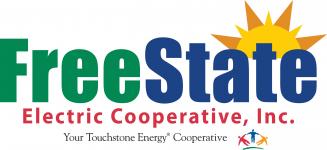Please call 1-800-794-1989 or use the SmartHub mobile app. To talk to a person, press zero.
Board Approves ESC Adjustment
Board Approves ESC Adjustment
On Monday, January 16, the board of trustees approved the proposed electric service charge (ESC) adjustment. Members will see the adjustment reflected on their monthly bill ($7.00) starting this month.
I wanted to address some of the feedback we heard regarding this adjustment. The overwhelming theme of the feedback we received was from members who work diligently to curb energy usage to keep their costs down. We understand this adjustment is frustrating for members who work to keep energy usage low, so we wanted to discuss why the trustees voted to adjust the service charge and not the energy charge.
Immediacy.
We don't have time to complete a full cost-of-service study. These studies take anywhere from one year to 18 months to complete, and the rising business costs do not make that timeline feasible to wait.
The ESC is a known and measurable revenue stream. FreeState rates are over a decade old, and weather driven. This is a difficult way to forecast, especially as we see drastic weather changes and fluctuations in our area. It's also important to note that every payment you make to the co-op is an investment in your electrical service. As a not-for-profit cooperative, we do not make a profit. We operate each year with the revenue collected. At the end of the year, if money is left over (margins), we return those to members in the form of capital credits when the cooperative's financial health allows. In 2022, the board elected to allocate capital credits and hold off on retiring capital credits to ensure the cooperative could withstand the current economic climate. FreeState's financials are currently in stable condition, and we want to stay that way.
Fixed costs include infrastructure that brings power to your home. No matter how much energy you use, it costs FreeState to provide you with the service. It costs the co-op to distribute power to you from the generation facility, through transmission lines, down to the substations, through the necessary infrastructure, and right to your home. An electric service charge is designed to recoup the costs of providing that power. FreeState averages 6.3 members per mile, whereas an investor-owned utility average six times that. Costs are spread out over those members. Increases in materials over the past decade have been significant, and supply chain delays have only made the situation more challenging. I'll list out the increased cost of basic materials to provide service to members. It is also notable that FreeState must restore and maintain the system, and we need to provide critical updates and upgrades to the infrastructure. We have also seen an increase in the cost of repairing outages.
- Meter Loops – 43%
- Meter Pedestals – 86%
- Underground Enclosures – 42%
- Insulator String – 28%
- Anchor/Guys – 19%
- Poles – 30%
Aging rates need to be keeping up with the current costs. FreeState utilizes financial forecasts to determine the financial needs of the cooperative. When predictions were made, there was no indication that inflation rates would be at record highs. Trustees and staff understand that a cost-of-service study within the next two years will be necessary. Record inflation rates have pushed this need for a new rate structure to the forefront. FreeState’s base rate is designed with the pace of wholesale power costs and the cost of doing business a decade ago, and as we have seen, prices have skyrocketed over the past decade. While we attempted to keep rates as low as possible, we could not anticipate the current economic climate.
I assure you that the cooperative staff scrutinizes every line item on the annual budget and works hard to be financially responsible with every member dollar. FreeState works hard to control what costs we can. When it comes to PCA, those costs are variable as we purchase power from suppliers. This year was especially volatile due to natural gas price fluctuations. In 2023 we anticipate natural gas costs to stabilize, and although the price is still high, we don’t expect significant spikes in the market.
Our trustees and staff know there is never a good time to make any adjustments, but our economic climate is dictating these measures.
As always, if you have questions regarding your service or the content of The Outlet, we encourage you to reach out to customerservice@freestate.coop.
